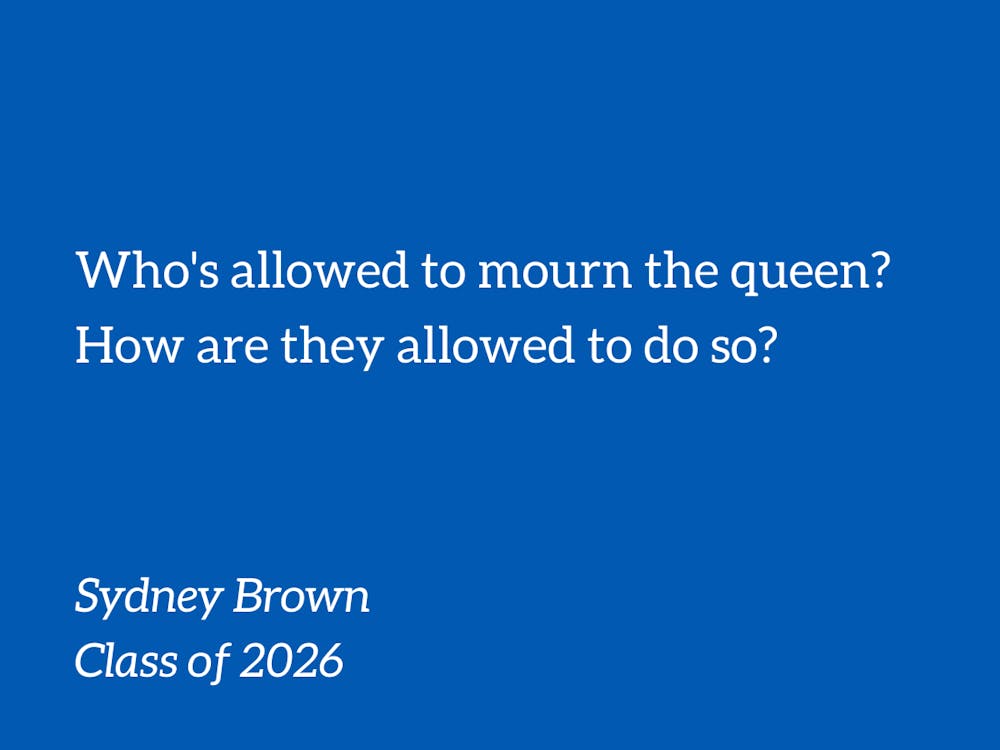On September 8, it was announced that Queen Elizabeth II had died. She was born on April 21, 1926 and ruled over the United Kingdom for 70 years. She was crowned queen on June 2, 1953, at Westminster Abbey.
Ever since the announcement of the queen’s death, a slew of responses has poured out from across the world, ranging from surprise to grief to indifference. These very same responses produced conflict over the way that people have chosen to ‘mourn’ the death of Queen Elizabeth II. Everyone, from celebrities to politicians to teenagers, shared their respects for the former monarch. In the days following her death, countless posts were posted to platforms such as Instagram mourning the queen, praising her legacy, and telling her to ‘rest in peace.’ Equally as many posts began circling the internet and were centered around Britain’s past, and the role that Queen Elizabeth II herself played in it.
These conversations circled social media with many people choosing to add in their own opinions on who decided to mourn and respect the queen; who chose to not mourn the queen; and how they decided to do so. With so much history, pain, and nationalistic pride surrounding her legacy, it raises the question: who’s expected to mourn Queen Elizabeth II? How are they expected to do so?
In my opinion, it was expected for people within the United Kingdom to mourn and go through a period of grief. It was even something that was planned for; with days of royal mourning and several statements scheduled to be released. I can even understand politicians mourning the death of the queen, whether because of genuine sadness over her dying or for some underlying reason. It was also expected that many people celebrated her death. Queen Elizabeth II represented all of Great Britain and the legacy of colonization and imperialization that accompanies its future, and still has a lasting impact on the nations it targeted. What was challenging for me to understand was the support for the queen that I saw from the United States, for no other reason than I couldn’t understand why we, as Americans, were particularly supposed to care.
Growing up, like a lot of people, my perspective on the royal family and royalty in general was shaped by what I saw on film and TV. There were the intricate castles, the sparkling jewels, the gorgeous dresses. The royal crown was built up to be this magical thing to covet; and the magical world of princes and princesses, and kings and queens was something that could only belong to fantasy and fiction. However, as I grew up, I faced the reality that the royalty we encountered in real life was not as benevolent and innocent as I had thought. In fact, I realized the royal family I had grown up hearing up had a past sullied with the sordid nature of its actions.
Britain’s history is one that’s well known. It was (and still is) an imperialist superpower whose reach extended to span most of the globe. It absorbed, and exerted its control over, many nations from North America, the Caribbean, Asia, and Africa into its empire. This is an incredibly brief overview, and is something I encourage you to look deeper into, but the full history and impact of the British Empire can still be seen today. Ghana became independent in 1957. Hong Kong was a British colony until 1997. It was only last year that Barbados became a republic. It was in March of this year that Jamaican activists, professors, and politicians called for reparations to be issued to the country, and in an open letter stated (about the queen) that they wouldn’t celebrate because, “her leadership, and that of her predecessors, have perpetuated the greatest human rights tragedy in the history of humankind.”
So, who's allowed to mourn the queen? How are they allowed to do so? It almost feels like a useless question because people have already grieved. People are still grieving. However, how can we ask those who are negatively affected by her rule to be sad and upset over the death of someone who played an active part in their oppression? How can we ask them to place their own feelings on pause to protect those who didn’t face the brutal impact of living under British control?
What are people supposed to do when other political figures die? No matter how they present themselves to the public, there are a number of politicians who have supported or directly called for action that negatively impacted people both within and outside of their home countries. Are those people expected to respectfully mourn the loss of those politicians? I feel as if it’s disrespectful to ask that of them. To ask them to acknowledge the harm someone has caused, and then show remorse or deep sadness over them no longer being around.
The open letter from Jamaica includes this quote: “During her 70 years on the throne, your grandmother has done nothing to redress and atone for the suffering of our ancestors that took place during her reign and/or during the entire period of British trafficking of Africans, enslavement, indentureship and colonialization.” If nothing had been done by the queen to atone for Britain’s control, or to earn the respect of the people, how can we be surprised when people celebrate her death?
We can’t.
Sydney Brown is a first-year student at Duke Kunshan University. Her column runs on alternate Fridays.
Get The Chronicle straight to your inbox
Signup for our weekly newsletter. Cancel at any time.

